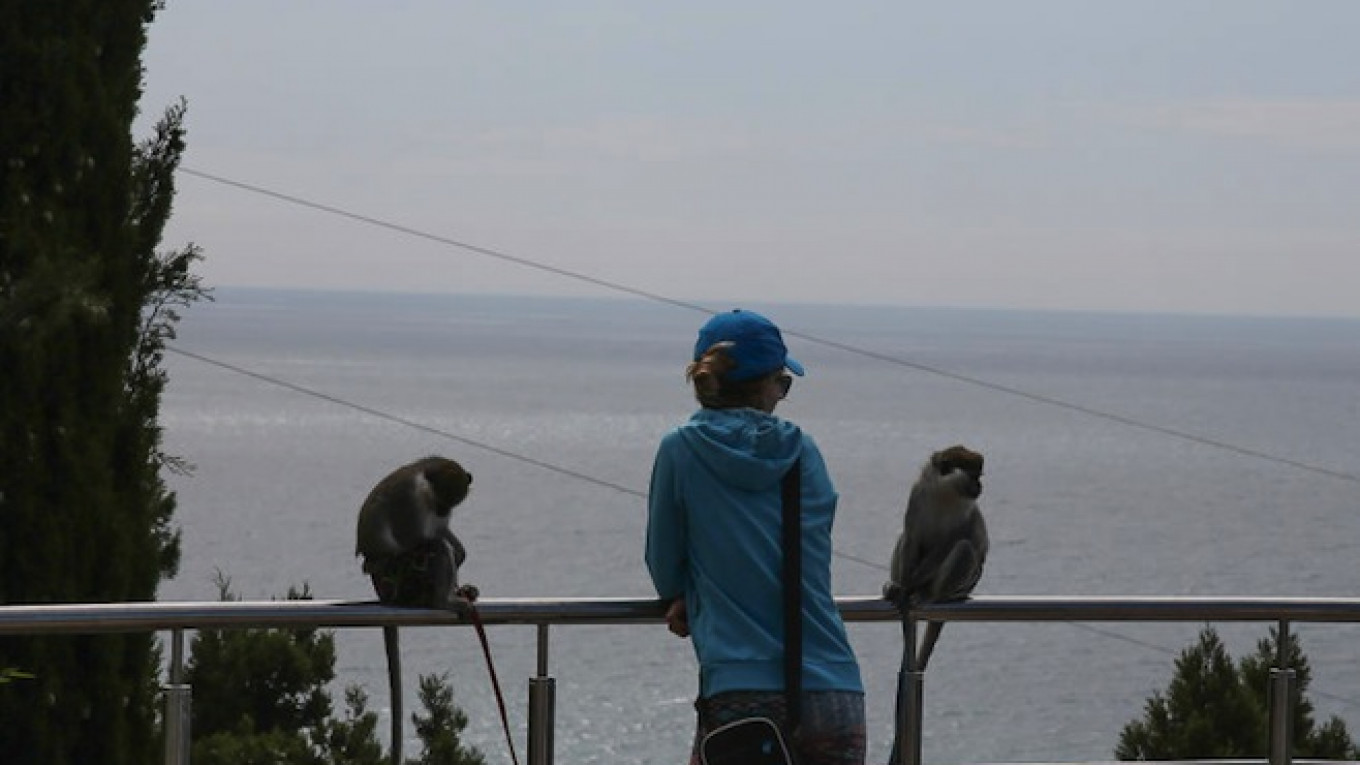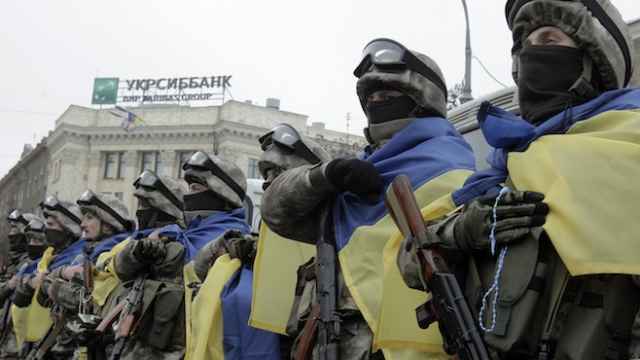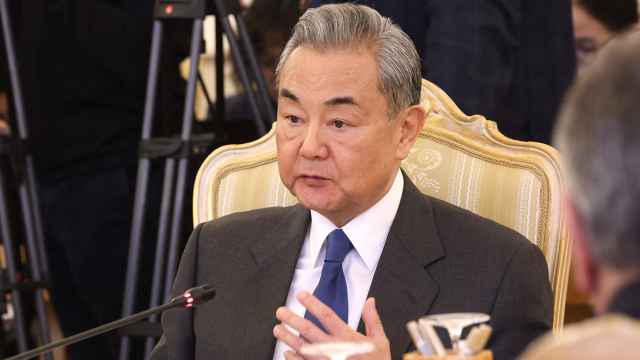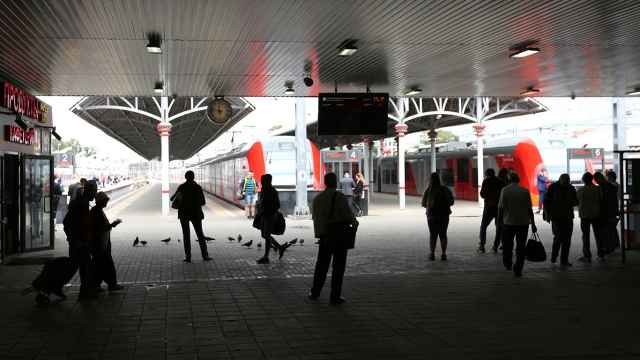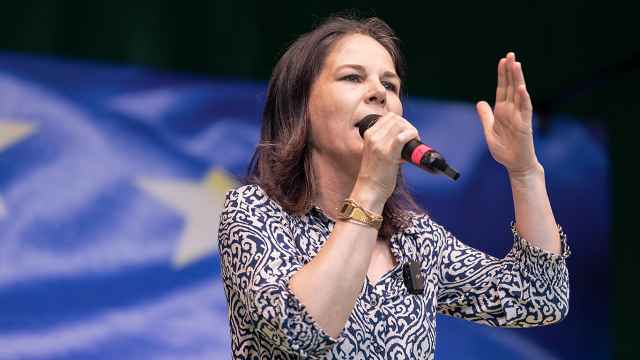MONTREAL — Russia and Ukraine are holding indirect talks to reopen a key international air corridor over the Black Sea to commercial flights in a plan that could give Ukraine much-needed overflight fees and ease congestion on other crowded air routes, according to five sources familiar with the matter.
The discussions, being brokered on the sidelines of an International Civil Aviation Organization safety meeting this week in Montreal, come amid renewed fighting between Ukrainian government forces and pro-Russian rebels after failed peace talks.
Aviation leaders are seeking to secure a mandate to implement new safety standards after a string of high-profile accidents around the world made 2014 the deadliest year for commercial airlines in almost a decade. The talks are focused on efforts to adopt new standards for global plane tracking and cooperation on the risks of flying over conflict zones.
Officials are working to reach a deal that would allow flights to resume in the international airspace managed by Ukraine off the coast of the Crimean Peninsula, which was forcibly annexed by Russia last year, the sources said.
One of the sources, who spoke on condition of anonymity due to the sensitivity of the talks, said the ICAO forum provided a neutral forum for the two neighboring countries to resolve the issue.
The airspace, which is located above the Black Sea and Sea of Azov, became a no-fly zone for international air traffic last April.
Aviation agencies, including the U.S. Federal Aviation Administration, had warned that pilots in the area might get conflicting instructions from Ukrainian and Russian air traffic controllers.
The airspace, part of a well-traveled route for commercial airlines' long-haul flights to the Middle East and Asia, does not go over Crimea or eastern Ukraine where a Malaysian airliner was shot down last July.
//Reopening of Airspace Eyed
Ukraine, which is delegated by ICAO to control that section of airspace despite Russia's control of Crimea, made a request to ICAO last autumn to reopen the corridor, which is over international waters.
Vadym Prystaiko, Ukraine's new deputy minister of foreign affairs, said a reopening of the airspace would help ease congestion on other routes, as international carriers diverted their planes away from Ukraine after the downing of Malaysia Airlines flight MH17 last year, killing all 298 people on board.
"We want them to reopen the route to traffic as soon as possible," Prystaiko, Ukraine's former ambassador to Canada and representative to ICAO, said in Montreal. "It [would mean] resuming business which everybody is so thirsty for, including Ukrainians and the air companies which are going through very busy routes."
The reopening would also enable Ukraine to take in air traffic fees that have fallen off steeply in the past year due to the ongoing conflict as airlines avoid the country's airspace, he added.
ICAO could not be reached for comment. Russia's ICAO delegation also could not be reached for comment.
Airline officials, however, were mixed on what reopening would mean for their operations.
A spokesman for Lufthansa said any decision to reopen flight paths at or near Simferopol — a key Crimean airport in Russian hands — would not cause the German carrier to rethink its routes.
"For us, the airspace will remain closed," the spokesman said.
In general, carriers make their own decisions over flight routes, said a spokesman for Condor, a German airline owned by tourism group Thomas Cook Group plc.
"Even if a route is open, we make our own assessments and may decide not to fly over it," he said. Condor has not flown over Ukraine for about a year.
A spokesman for Norwegian Air Shuttle said the airline will not change its routing until the airspace is deemed safe by Eurocontrol, the European air traffic control agency.
Eurocontrol was not immediately available for comment.
Ukraine's Prystaiko said that despite the Simferopol airport being in Russian hands and pro-Russian separatists making new territorial gains against Ukraine's armed forces, his country's air traffic controllers could safely guide commercial flights above the Black Sea from their airport in Odessa.
"Our position is very simple — technically we are in control and [we can provide for] the safety of the passengers on the flights. We will be working with the airlines directly, but the role of ICAO is important and their recommendations are important," he said.
A Message from The Moscow Times:
Dear readers,
We are facing unprecedented challenges. Russia's Prosecutor General's Office has designated The Moscow Times as an "undesirable" organization, criminalizing our work and putting our staff at risk of prosecution. This follows our earlier unjust labeling as a "foreign agent."
These actions are direct attempts to silence independent journalism in Russia. The authorities claim our work "discredits the decisions of the Russian leadership." We see things differently: we strive to provide accurate, unbiased reporting on Russia.
We, the journalists of The Moscow Times, refuse to be silenced. But to continue our work, we need your help.
Your support, no matter how small, makes a world of difference. If you can, please support us monthly starting from just $2. It's quick to set up, and every contribution makes a significant impact.
By supporting The Moscow Times, you're defending open, independent journalism in the face of repression. Thank you for standing with us.
Remind me later.


